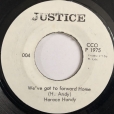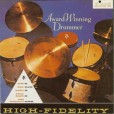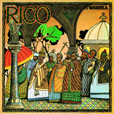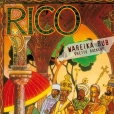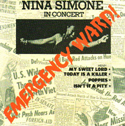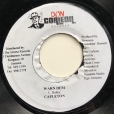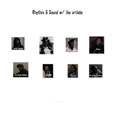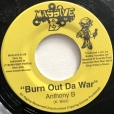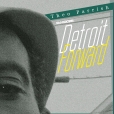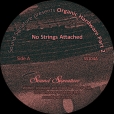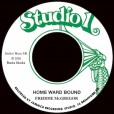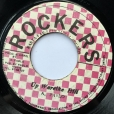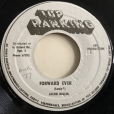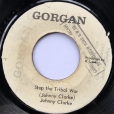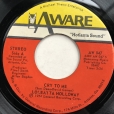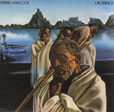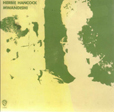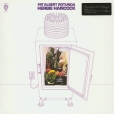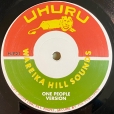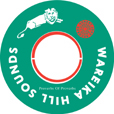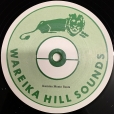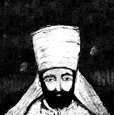Your basket is empty

Burial Mix numbers 6 to 12: classic after classic, like King In My Empire, Queen In My Empire, We Been Troddin’...
‘Herbie took the basic instrumental tracks of Quasar and Water Torture to Patrick
Gleeson’s Different Fur Studios, hoping to learn how to play the Moog synthesizer. Instead, Hancock let Gleeson contribute layers of sound to both pieces: on Quasar extending the horn playing of Bennie Maupin, Julian Priester and Eddie Henderson through electronic accents; on Water Torture providing a ghostly counter melody on the Mellotron (using samples from string instruments). These studio enhancements give Crossings an
otherworldly dimension, making the album feel bigger and more fantastical, yet the Sextet’s playing — recorded without much in way of edits or overdubs — keeps everything grounded. Indeed, Gleason’s additions are often so natural that it is hard to pick out what’s acoustic and what’s synthesized.’
The second LP by the sextet aka the Mwandishi Band, and Herbie’s last for Warner Brothers, clearing the way for the Headunters.
LP from Music On Vinyl.
‘After releasing their Warner Bros. debut, the Herbie Hancock Sextet underwent a major transformation in the early ’70s. Over the course of a year, every member was replaced (except Herbie Hancock himself and bassist Buster Williams) and each adopted Swahili names. Hancock chose the moniker Mwandishi (‘composer’), and the Sextet became unofficially known as the Mwandishi Band.
‘The lineup’s first album reflects Hancock’s new aesthetic and spiritual directions. Stretching out from the r&b/jazz-fusion of Fat Albert Rotunda, the pianist would draw inspiration from his time with Miles Davis…
‘Dedicated to Angela Davis, Ostinato is an extended jam with stunning rhythmic complexity — enhanced by such studio effects as Echoplex delay. On You’ll Know When You Get There, Hancock’s tight arrangements are saturated in reverb, which gives an ever-shifting dimensionality. Side-long closer Wandering Spirit Song, written by trombonist Julian Priester, goes even further out: alternating between dynamic soloing and group improvisation, the Sextet fully manifests the radical potential of their collective identity/energy.
‘A bold and expansive statement, even after nearly fifty years.’
‘A playful, joyous album in which Hancock clearly had a great time, this music was composed for the pilot of a children’s TV show, redirecting the post-bop of his five-year stint with Miles towards new r&b and funk styles. Flying high with three horn players — Joe Henderson, Garrett Brown and Johnny Coles — alongside Hancock’s soaring Fender Rhodes, the group could swing freely on a track like the rousing Fat Mama and emote precisely on the subtle Tell Me A Bedtime Story.’
Full, bone-heavy horns, swirling organ and rocking nyabinghi drumming; and with a storming dub.
An exclusive mix, featuring the original Light Of Saba drummers; with two new instrumentals, one in a more laid-back grounation style, the other blood-and-fire; and a chant, upful and defiant.
From this veteran of the Count Ossie group and The Light Of Saba — ‘These are my recordings from the last couple of years, blazing grounation roots reggae.’
An unexpectedly upful, shuffling, percussive rug-cutter, with the Light Of Saba veteran bringing a little go-go to the grounation, and a deft, lovely dub mixed by Moritz von Oswald.
Headlong, fierce, banked rasta drumming fit to discombobulate any kind of system, with sweet, jazzy trombone riding it down, bubbling bass driving it home, and all of it classically dubwise.
Wareika Hill Sounds is the contemporary roots reggae project of Calvin Cameron — mainstay of the original Light Of Saba line-up, the genius behind Lambs Bread Collie — who to this day lives above the headquarters of the Mystic Revelation Of Rastafari, in the Wareika Hill district of Kingston, Jamaica.
In the great pedagogical traditions of the multi-cultural Light Of Saba, and before that Count Ossie, this new recording runs together two JA musical traditions — a kind of drumming (and drum) brought from the Congo, and the island’s variation of calypso — into a thundering grounation charge. As always, the Skatalite’s trombone-playing is majestic: deadly, gripping, deeply cultivated.
The dub is tremendous, too.
‘From the college where you get your musical knowledge, shower on the hour every hour’ — as I-Roy would say, in a Leninist style and fashion — ‘Knowledge Is Power.’
In the great tradition of his time with Count Ossie, four new grounation furies — hypnotic, thunderous, urgent, mystical — with dubwise repeta, funde and bass drums embedding the Light Of Saba veteran’s gorgeous trombone classicism.
The opener is a rocking kumina rhythm, with ring-the-alarm metal percussion and exhortatory brass; Free The People swirls some apocalyptic reasoning into the foggy, thumping mix. Universe In Crisis is another emergency call, chuffing headlong down the grooves… before the beautiful, anthemic Chant takes a step back from the fire, closing with a sense of thankful, spiritual reconciliation, the expert drumming and lyrical bone-work in full effect.
